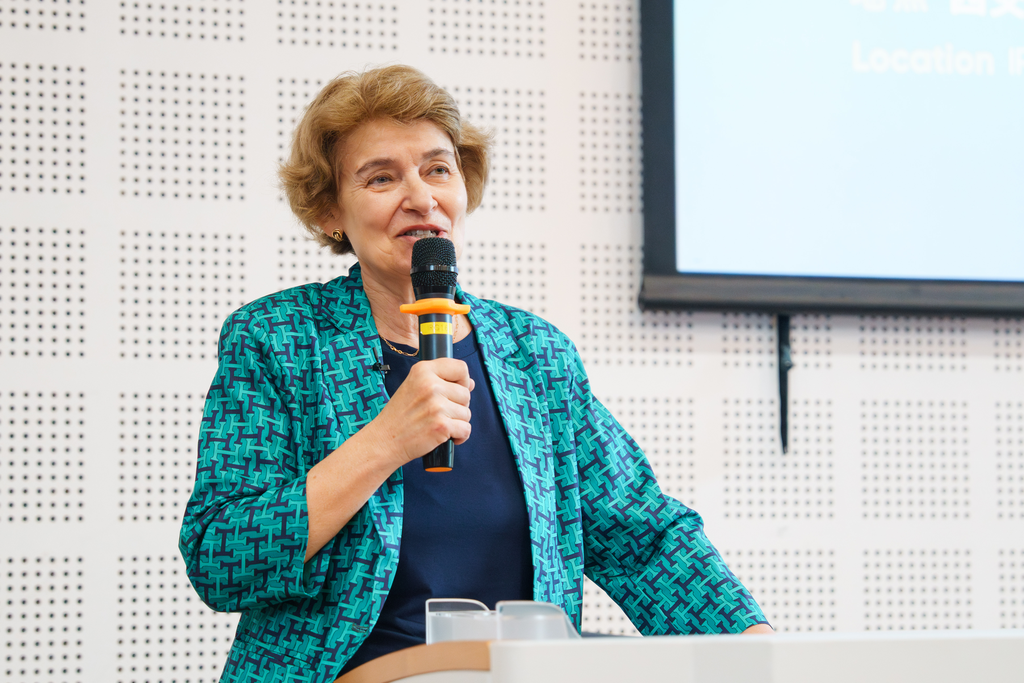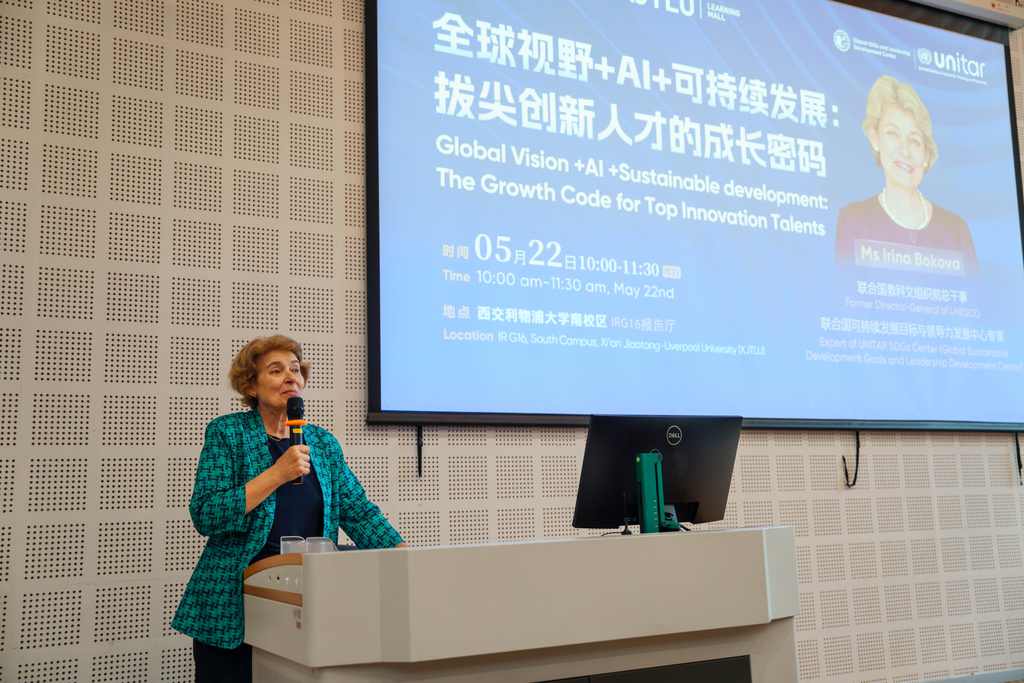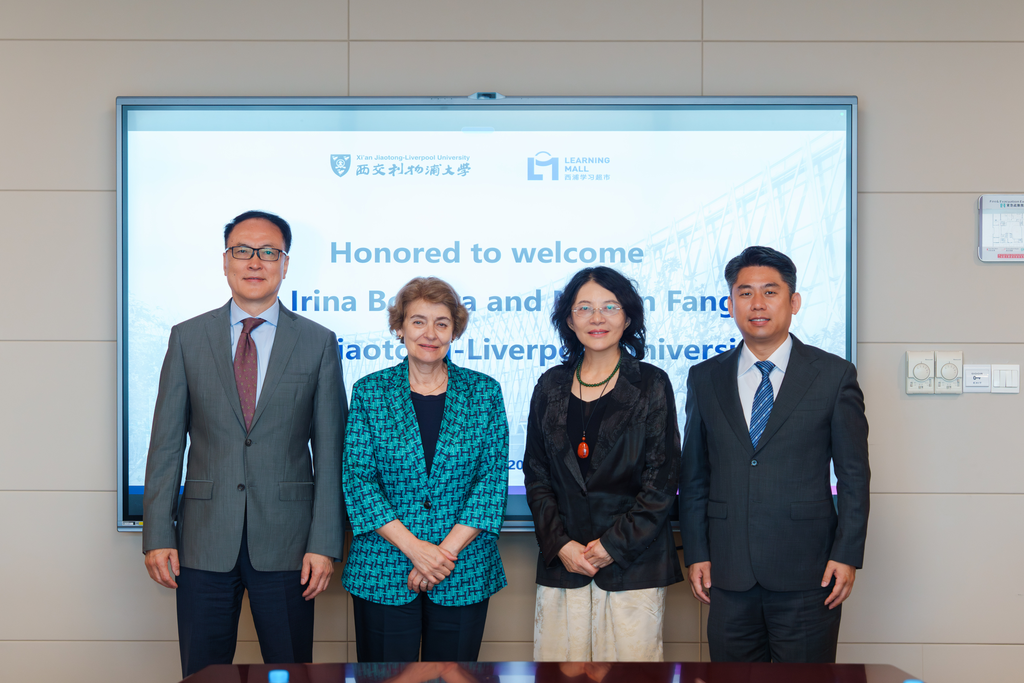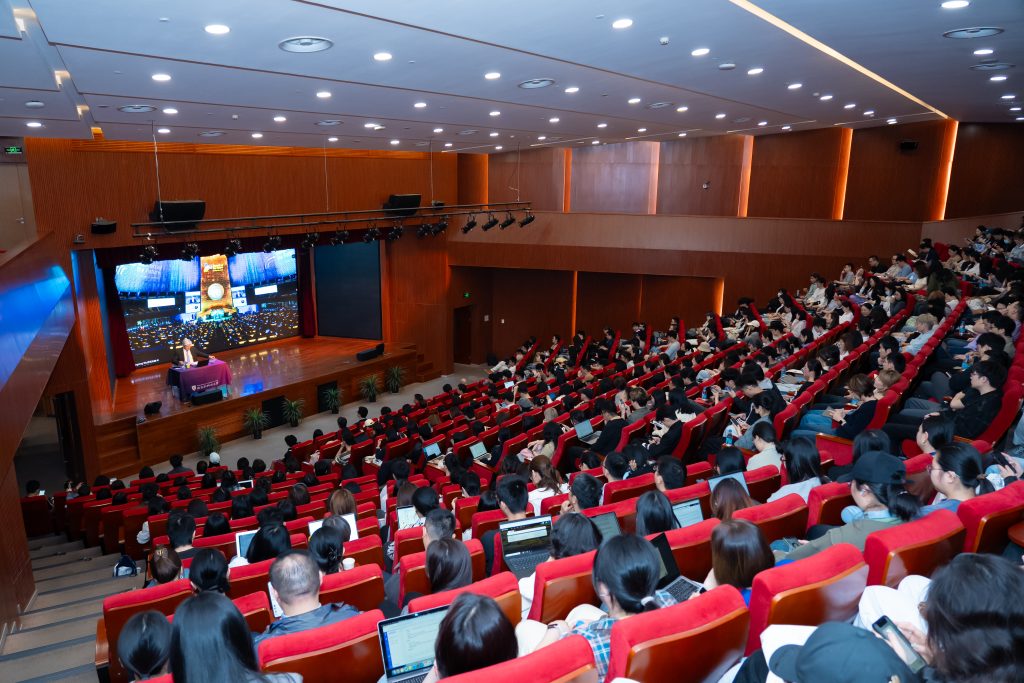23 May 2025
“The future of education lies, in my mind, in empowering young learners to embrace and develop their uniquely human qualities – those that are unlikely to ever be replaced by technology,” said Irina Bokova, former Director-General of UNESCO, in a lecture at Xi’an Jiaotong-Liverpool University (XJTLU) on 22 May.
Bokova previously served as Bulgaria’s Ambassador to France and Monaco. In 2009, she became UNESCO’s ninth Director-General – the first woman and first Southeastern European to hold the position. During her term, she focused on gender equality, education, and terrorism prevention. In recognition of her global impact, Forbes named her one of the world’s most influential women in 2016, and she was elected an International Honorary Member of the American Academy of Arts and Sciences in 2020.

Irina Bokova
Developing global competencies
Bokova first discussed the importance of global competencies for preparing young people to navigate and succeed in an interconnected world.
“Global competencies equip young students with the ability to understand and to appreciate cultural diversity. In a world where societies are becoming more multicultural, the ability to respect different cultures is paramount.
“Secondly, global competences enhance critical thinking and problem-solving skills. Global challenges, such as climate change, poverty, and inequality, all require innovative and collaborative solutions.
“By engaging students in global issues, we encourage them to think critically about the world around them, to question assumptions and to consider multiple viewpoints,” she said.

Irina Bokova
‘A double-edged sword’
Bokova then shared her insights on AI and its impact on workforce and education.
“The impact of AI on the workforce is undeniably a double-edged sword,” she said. “The reality is that some jobs will be displaced, and some skills will become obsolete. The International Labour Organization estimates that about 83 million jobs will be displaced, and 44% of workers’ skills will be disrupted in the next five years until 2030.
“At the same time, the optimistic view is that AI is poised to create more jobs. A striking 60% of workers today are employed in occupations that did not exist in 1940. Over 85% of employment growth over the last 80 years is explained by the technology-driven creation of new positions.
“Similarly, AI is expected to create new direct and indirect jobs – maybe even more. But in order to cope with this, we will have to upskill, reskill, and continue learning on an ongoing basis,” she said.
Bokova also spoke about how education, particularly higher education, should respond to AI and its overall impact on economy and society.
“AI is reinventing the workforce. This has immense implications for the education system. For universities, this means a fundamental shift in priorities, including embracing lifelong learning as an integral part of their mission, and serving non-traditional learners with customised programmes tailored to evolving professional needs,” she said.
The importance of education
At the end of the lecture, Bokova highlighted the role of education in shaping a better future.
“Education is the foundation of the sustainable development agenda, and I would say of human development in general, because it is vital for our health, for our jobs, for gender equality, for protecting the environment, fighting climate change, and living together in respect for diversity,” she said.
“There is a tremendous need for investment in education worldwide – not just any education, but education that is transformative and equitable; that embraces innovation and diversity; that encourages creativity and the ability to make choices; and that supports students and other learners in developing the necessary knowledge, skills, and mindsets to contribute to solving the complex sustainable development challenges.
“And last but not least, education that teaches the values of solidarity, empathy, mutual respect, and intergenerational support,” Bokova said.

From left to right: Jun Fang, Irina Bokova, Professor Qiuling Chao, and Dr Xin Bi
The lecture, titled “Global Vision + AI + Sustainable Development: The Growth Code for Top Innovation Talents”, was organised by XJTLU Learning Mall.
Other attendees included Professor Youmin Xi, Executive President of XJTLU; Professor Qiuling Chao, Vice President for Student Affairs and Information; Jun Fang, Former Deputy Director-General of the Department of International Cooperation and Exchanges, China Ministry of Education; and Dr Xin Bi, Chief Officer of Data and Director of Centre for Knowledge and Information at XJTLU.
By Xinmin Han
Edited by Patricia Pieterse
Photos by Zuofu Wang
23 May 2025
RELATED NEWS

Speaker: Multilateral leaders need vision, ethics, and political courage
Despite many current global threats – including increasing conflicts, economic shifts, and climate change – there is hope, said a former United Nations Under...
Learn more







